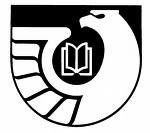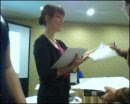Thanks and Happy New Year!
APPENDIX 5
DISCARD INSTRUCTIONS
Guidelines for Discarding Government Documents
These guidelines are based on the online Federal Depository Library Handbook at http://www.fdlp.gov/handbook/index.html. Documents received through the Federal Depository Library Program belong to the federal government. A selective library must obtain permission from its primary regional library to discard depository material.
Items listed on a discard list must have been received in the depository library five or more years prior to the date of the discard request. Superseded items included on discard lists at the request of Louisiana’s Regional Depositories are an exception to the five-year rule. Selective libraries wishing to withdraw documents should consult the Federal Depository Library Handbook for general rules on how to treat withdrawn material. It should be noted that no library is required to discard any depository library materials.
Procedure:
1. Create a list of materials to be discarded:
Superseded materials should be on a separate list from regular discards.
Include all contact information on the list such as: library name, depository library number, e-mail address, and contact person.
List call numbers in SUDOC order.
Separate call numbers by format: Paper, electronic, microfiche, etc.
List the complete title of each publication
Indicate if the document is bound.
Serials should include the series title and holdings (vol., no., years)
If the material is in poor condition, please note this information.
In general practice, libraries are not required to list superseded materials but are encouraged to offer historical or significant materials. However, Louisiana Regionals have made certain exceptions to this policy/procedure, as follows:
Call numbers that have an “R” in the right hand column (refer to “Superseded List 2002” at http://www.access.gpo.gov/su_docs/fdlp/pubs/suplist/index.html). The “R” indicates that Regional Libraries must retain these titles.
All “general publication” titles, such as: A 1.2:, HE 20.4002:, I 19.2:, T 22.2:, etc.
Titles that LATECH and LSU agreed to retain from the 1991 publication “Regional Libraries Superseded Decisions, 1989-1991.”
Other titles that the Regional Libraries have decided to retain. (Selective Libraries will receive a list of any titles that Regional Libraries retain based on local retention policy decisions. This list will be modified semi-annually, if needed).
Note: If a library supplements or replaces depository material by purchasing the same title in another format, e.g., microform or CD-ROM, the depository items cannot be bartered or exchanged and must be offered to the regional library if the purchasing library wishes to dispose of them. Under these circumstances, the discarding library does not need to adhere to the five-year retention period but may offer the depository items at the time of replacement.
2. Copies of the list should be sent, simultaneously to each of the regional libraries, indicating a deadline of three weeks. E-mail is the preferred method. All documents must be held until both regionals have responded to the discarding selective depository.
LSU Libraries
Middleton Library
Government Documents Dept., Room 53
Baton Rouge, LA 70803
Stephanie Braunstein
sbraunst@lsu.edu
and Doris Hutson
dchutso@lsu.edu
225-578-7021
Fax: 225-578-6535
Louisiana Tech University, Prescott Memorial Library
Government Documents Department
Everett Street at the Columns
P.O. Box 10408
Ruston, LA 71272
Rita Franks
rfranks@latech.edu
318-257-4989
Fax: 318-257-2579
3. Within a few days of receiving the request, the regionals will each send an e-mail response to let the selective know that the list has been received.
4. Both regionals review the discard list to ensure that nothing is being offered that shouldn’t be and to determine if any of the materials are needed in the regional’s collection. Prior to the deadline, the primary regional will send an e-mail to the selective granting permission to withdraw the items and both regionals will request any items needed from the list. If a regional is not able to complete this within the three week deadline, it will contact the selective library and give a new deadline date.
The regional libraries have priority for all documents offered on any discard list. If both regional libraries request the same document, that document should be sent to the disposing library’s primary regional (see Appendix 4).
5. After receiving permission to discard items, the selective library will edit the Discard List to delete any items requested by the regionals and post this revised list to the Louisiana government documents listserv, Bayoudoc. Materials must be made available for a minimum of three weeks to allow other selective libraries sufficient time to request materials.
Note that any items from Superseded Lists that are NOT requested by either regional can be discarded immediately and do not need to be included in the revised list as sent to Bayoudoc.
Selective libraries receiving items from the list will be responsible for shipping costs. All libraries are encouraged to use the state courier service.
Remaining items of historical or significant nature should be offered through the National Needs and Offers List at http://www.access.gpo.gov/su_docs/fdlp/tools/needs_of/index.html and/or on GOVDOC-L.
6. After all reasonable efforts have been made to transfer the publications to other libraries, the depository library is authorized to dispose of the remaining items by means of any of the following:
a. Offer historical or significant sets to the U.S. Government Printing Office for digitization or housing in its dark or light archives;
b. Offer to other educational institutions;
c. Offer to private citizens;
d. Donate as paper to recyclers or paper drives;
e. Sell, either as secondhand book or waste paper. All depository publications remain the property of the U.S. Government. Therefore, the proceeds from the sale of any items, accompanied by a letter of explanation, should be sent to the Superintendent of Documents, U.S. Government Printing Office, Washington, D.C. 20402.
f. Destroy



















